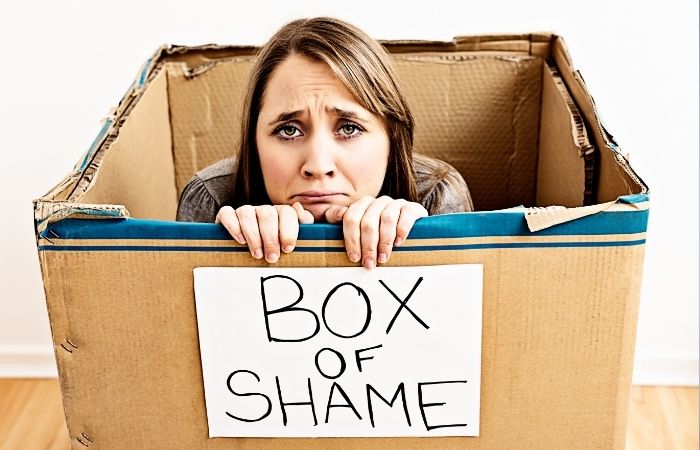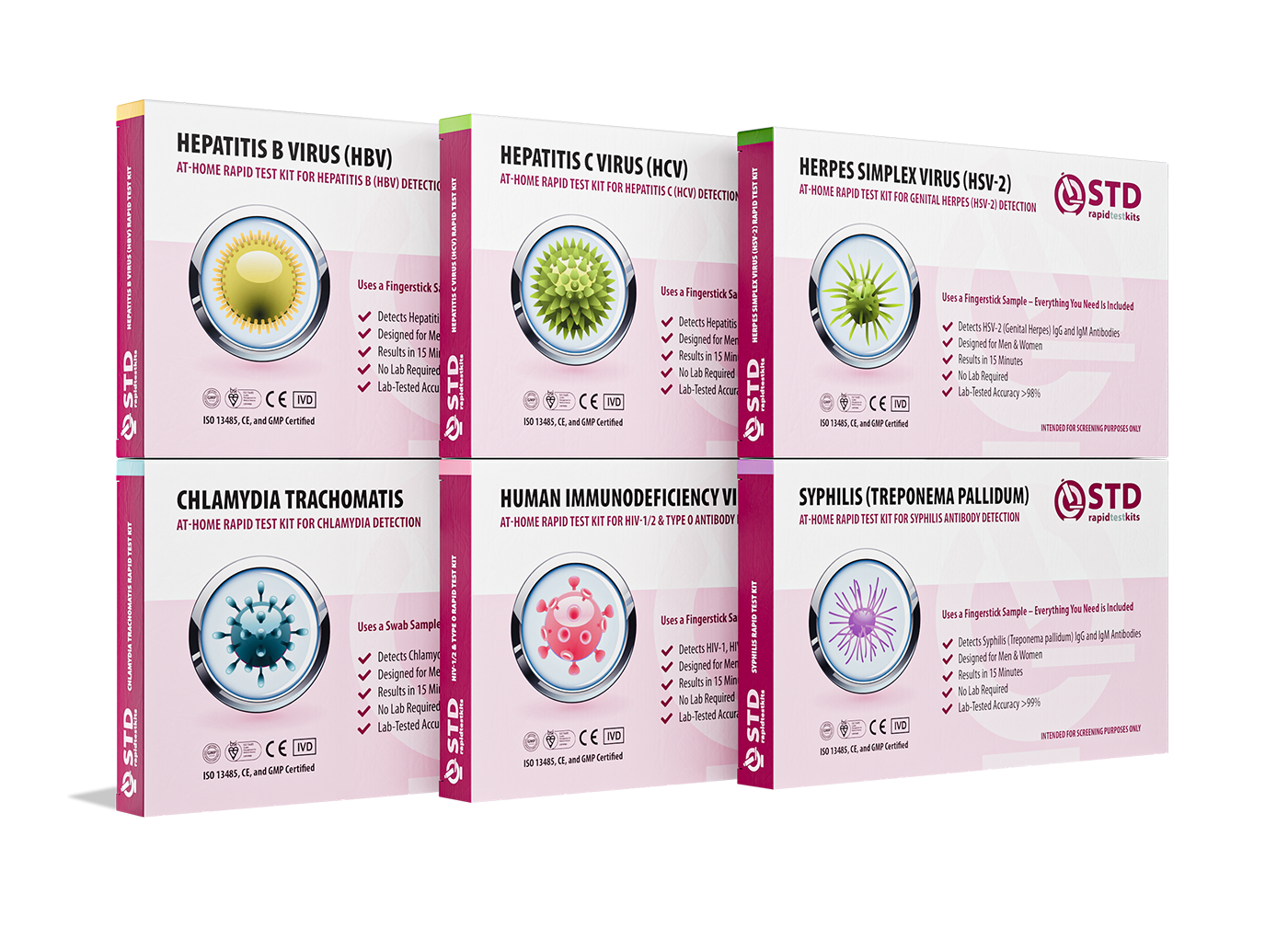Quick Answer: At-home STD testing offers accurate, private results for most common infections, but in-clinic testing remains the gold standard for broader panels, complex symptoms, and immediate treatment. Couples should choose based on access, comfort, and clinical needs.
This Isn’t Just About “Being Safe”, It’s About Peace of Mind
We don’t talk enough about why so many couples get tested before marriage, or why some avoid it entirely. It’s not just about infection. It’s about reassurance. It’s about trust. For many, it’s about confronting the unspoken: past partners, previous mistakes, one-time encounters, and everything in between. “We were each other’s firsts... mostly,” said Amira, 28, who tested positive for Chlamydia two weeks before her wedding. “He was devastated. I was mortified. But honestly? Testing saved our relationship. We handled it together.”
STDs don’t care how long you’ve been exclusive. Some lie dormant for years. Others show up without a single symptom. That’s why premarital STD testing has become a quiet ritual for many couples, whether they’re straight, queer, poly, or still figuring things out. No judgment. Just clarity.
And yet, most people Google first. “What to expect at an STD clinic.” “Is at-home STD testing accurate?” “Can I test negative and still have herpes?” These aren’t just curiosity searches. They’re emotional SOS signals, typed in bathrooms and bedrooms late at night. This article is here to answer them, without shame, without fluff, and with full honesty.
When Symptoms (or Silence) Start the Search
Let’s get honest about what brings people to test in the first place. Sometimes it’s a burning sensation. Sometimes it’s a bump you can’t explain. Sometimes it’s nothing, just a gut feeling. The most common symptoms that prompt couples to test before marriage include:
A strange discharge that wasn’t there before. Itching after sex that lingers longer than it should. A single ulcer that looks suspicious. Or maybe, nothing at all, just a partner’s reaction when the conversation turns toward past hookups. “He asked me, point blank, ‘Have you ever been tested?’” said Devin, 32. “I’d only done it once in college. That moment shook me. I realized I didn’t even know what my results had said back then.”
That’s what makes STDs tricky. Many are asymptomatic. According to the CDC, around 70% of people with Chlamydia show no symptoms. Herpes can lie dormant for years. And HIV may go unnoticed until advanced stages, especially if you’ve never been screened. Symptoms can’t be your only signal. That’s why testing matters even if you “feel fine.”
It’s not about suspicion. It’s about truth. Real truth. Quiet, powerful, necessary truth that can make a relationship stronger, not weaker.

People are also reading: Anxiety About STD Testing An Important Concern
Inside the Clinic: What You’re Really Signing Up For
Walking into a clinic for STD testing can feel like walking into a courtroom, especially if you’re carrying shame you didn’t even know you had. There’s the form. The waiting room. The “what are you here for?” question asked too casually. It’s no wonder people hesitate. “I felt like I was being judged before I even peed in the cup,” said Marcus, 35. But beneath the awkwardness, clinics offer something at-home tests still can’t fully replicate: real-time medical support and broad-spectrum diagnostics.
Depending on your provider, a clinic may offer blood tests, urine samples, swabs, physical exams, and rapid tests, all in one visit. You’ll also get access to immediate treatment if you test positive. According to the Planned Parenthood STD testing guide, providers often tailor testing based on your risk factors, symptoms, and sexual history, not just a one-size-fits-all panel. This means you might be screened for less obvious infections like Syphilis, Trichomoniasis, or Hepatitis B.
The downside? Cost, time, and emotional labor. Many clinics require appointments, and wait times for results can range from 2 days to 2 weeks. Some locations aren’t queer-friendly or trauma-informed. And not everyone feels safe sharing sexual history with a stranger behind a desk. That’s where at-home tests come in, for better and for worse.
Check Your STD Status in Minutes
Test at Home with Remedium7-in-1 STD Test Kit

 For Men & Women
For Men & Women Results in Minutes
Results in Minutes No Lab Needed
No Lab Needed Private & Discreet
Private & DiscreetOrder Now $129.00 $343.00
For all 7 tests
At-Home STD Tests: Convenient, Private, Surprisingly Accurate
When COVID hit, the world of sexual health changed. Suddenly, telemedicine and mail-in kits weren’t backup options, they were lifelines. At-home STD tests skyrocketed in use, especially among younger, tech-savvy, and privacy-conscious users. And the good news? Many of them work.
Most home tests today are lab-grade. You order online, collect samples yourself (usually blood via finger prick, urine, or swabs), then mail them back in a discreet package. Results typically arrive in 2–5 days, often through a secure online portal. The best kits test for multiple STDs at once, including Chlamydia, Gonorrhea, Syphilis, HIV, and sometimes HSV and Hepatitis C.
According to a peer-reviewed study in the Journal of Medical Internet Research, the sensitivity and specificity of at-home tests for Chlamydia and Gonorrhea are comparable to clinic-based NAAT tests, often above 95%. Still, false negatives can happen, especially if instructions aren’t followed precisely. And unlike in a clinic, there’s no one guiding you through your anxiety, reading your symptoms, or offering treatment on the spot.
But for many couples, especially those who fear judgment or live in areas with limited access, at-home testing is a revolution. “We tested at home because it felt safer emotionally,” said Jenna, 27. “No side glances. No awkward questions. Just the two of us, on our couch, facing the truth together.”
Why Some Couples Don’t Test (Even When They Should)
Shame is still one of the biggest barriers to testing, especially before marriage. For some, it's fear of what a positive result might mean for the relationship. For others, it’s the quiet belief that asking to test implies distrust. “He thought I was accusing him of something,” said Sonia, 30, who brought up testing two months before her wedding. “But I just wanted to start our life clean and clear. He didn’t get that at first.”
Other barriers include cost (especially in countries without free public health options), limited clinic access, religious guilt, and the myth that monogamy equals immunity. But here’s the truth: you can be faithful and still carry an STD. Some are passed without symptoms. Some were acquired years ago. Some don’t show up on every test.
According to the National Library of Medicine, stigma remains a driving force behind delayed or skipped testing, even among well-educated couples. That silence? It’s not protecting anyone. It’s keeping people sick, scared, and stuck in shame.
That’s why the testing method itself matters less than the act of testing. Whether it’s in a clinic, on a couch, or in your car with a swab kit on the dash, the point is to know. To show up. To stay honest.

People are also reading: Are Instant STD Test Kits Reliable? Understanding Rapid Testing vs. Lab Tests
“But We’re Monogamous”, And Other Testing Myths That Hurt More Than Help
If you’re engaged or newly committed, there’s a good chance one of you has said (or thought), “But we don’t need to test, we’ve only been with each other.” Fair. But maybe not accurate.
Let’s clear the air: monogamy doesn’t erase past partners, and it doesn’t eliminate all risk. A recent study published in the Public Health Reports found that over 20% of engaged couples who believed they were “low risk” tested positive for at least one STD, most often HPV or Chlamydia. Many of them had no symptoms. Some hadn’t had sex in over a year. Still, the infection lingered, unannounced.
Another myth? That at-home tests aren’t trustworthy. It depends where you get them. Tests from verified providers like STD Rapid Test Kits use the same clinical-grade methods used in labs across the country. You’re not “settling” for a lesser test. You’re choosing privacy and accessibility, without sacrificing accuracy for most common infections.
Then there’s the fear-based myth: that asking to test means you don’t trust your partner. That’s not testing. That’s trauma. Reframing testing as a mutual act of care, like getting vaccinated together or budgeting for a shared future, can shift the dynamic from accusation to alliance.
Check Your STD Status in Minutes
Test at Home with Remedium6-in-1 STD Test Kit

 For Men & Women
For Men & Women Results in Minutes
Results in Minutes No Lab Needed
No Lab Needed Private & Discreet
Private & DiscreetOrder Now $119.00 $294.00
For all 6 tests
What If One of You Tests Positive?
Here’s the nightmare scenario. You test. You wait. The results come in. And one of you is positive.
“I tested positive for HSV-2 three weeks before our wedding,” said Ty, 29. “We hadn’t even had sex in two months because we were stressed with planning. I thought I’d ruined everything.” But his fiancé didn’t leave. They cried. They researched. They rescheduled their honeymoon and got matching rings engraved with the date they got tested instead of the wedding day.
Testing positive isn’t the end. It’s a pivot. For treatable infections like Chlamydia and Gonorrhea, you’ll likely get a short course of antibiotics and be in the clear within weeks. For others like Herpes or HIV, treatment can still reduce transmission to nearly zero and allow for healthy, vibrant relationships.
What matters is what happens next: open conversations, shared decisions, follow-up testing, and, if needed, treatment plans. Many couples come out stronger. Cleaner? Sure. But also clearer, about their past, their boundaries, their trust.
The Test Is Just the Start. What Comes After Can Be Beautiful
Testing doesn’t ruin relationships. Secrets do. And silence does more damage than any diagnosis. “When we opened the results, I swear, I felt more connected to him than I had in months,” said Rita, 33. “Because we did it together. We weren’t afraid anymore.”
If your partner refuses to test, or downplays your concerns, that’s information too. You deserve someone who values your health as much as their own. Testing isn’t about suspicion. It’s about solidarity. That quiet moment of “whatever the result, we’ll face it together” might be one of the most intimate things you do before saying “I do.”
Don’t let logistics stop you. This FDA-approved Combo STD Test Kit checks for the most common infections discreetly and accurately. Results come fast, and privacy is guaranteed. Whether you’re planning a wedding or just starting a new chapter, one small step can offer long-term peace of mind.
Your health isn’t a red flag, it’s a love language.
FAQs
1. Is it really possible to test for STDs at home?
Yes, but only if you use kits from trusted sources that have been approved by the FDA. If you use them correctly, home tests for Chlamydia and Gonorrhea are more than 95% accurate.
2. Do both people need to get tested before they get married?
Sure. Testing together builds trust and makes things clear for both people, even if only one partner has symptoms or a known history.
3. How long does it take to get the results of an STD test?
You usually get the results of your at-home test in 2 to 5 days. The times for the clinic vary, but it could take up to two weeks, depending on the test and the provider.
4. What will happen if I test positive?
Most sexually transmitted diseases can be treated. If you have a bacterial infection, you'll get medicine. If you have a viral infection, you'll talk to a provider about how to manage it. Many at-home services now offer follow-up care through telemedicine.
5. Is it possible to have an STD even if I don't have any symptoms?
Yes. Chlamydia, herpes, and HPV are just a few examples of STDs that can go without symptoms for months or even years. The only way to be sure is to test.
6. Is it safe to take an STD test at home before you get married?
Yes, but only if you can trust the source. Check that the business uses certified labs and keeps your information safe.
7. What if my partner doesn't want to test?
That's a warning sign. Testing is about being careful, not being suspicious. It's worth stopping and asking why if someone won't do basic sexual health safety.
8. Can I order a test without anyone knowing?
Sure. Good services send packages that aren't marked and give you safe online access to your results. No clinic. No weird talks.
9. Do you need to check if you are both still virgins?
It still depends, though. Some infections, like oral herpes or HPV, can be spread through non-genital contact. Testing gives you proof, not just a guess.
10. Is it against the law to get tested for STDs before marriage?
Yes, in some countries and states in the U.S., it is often part of the process of getting a marriage license. But no matter what the law says, it's a smart and loving choice.
You Deserve Answers, Not Assumptions
There’s no one “right way” to test before marriage. What matters is that you do it. Whether you choose the privacy of your own home or the comprehensive care of a clinic, testing together says: I want this relationship to start with honesty. I respect your body as much as my own. I’m here, fully, openly, and without shame.
Take the guesswork out of your love life. Order your rapid at-home test kit today and move forward with clarity and confidence. One step. Two results. Zero secrets.
Sources
2. Accuracy of self‑collected specimens vs healthcare worker‑collected specimens across STIs
3. Screening for Chlamydial and Gonococcal Infections
4. Are At‑Home STI Tests as Accurate as Clinic Tests?
5. At‑home specimen self‑collection as additional testing
6. Lack of Awareness of Partner STD Risk Among Heterosexual Couples










